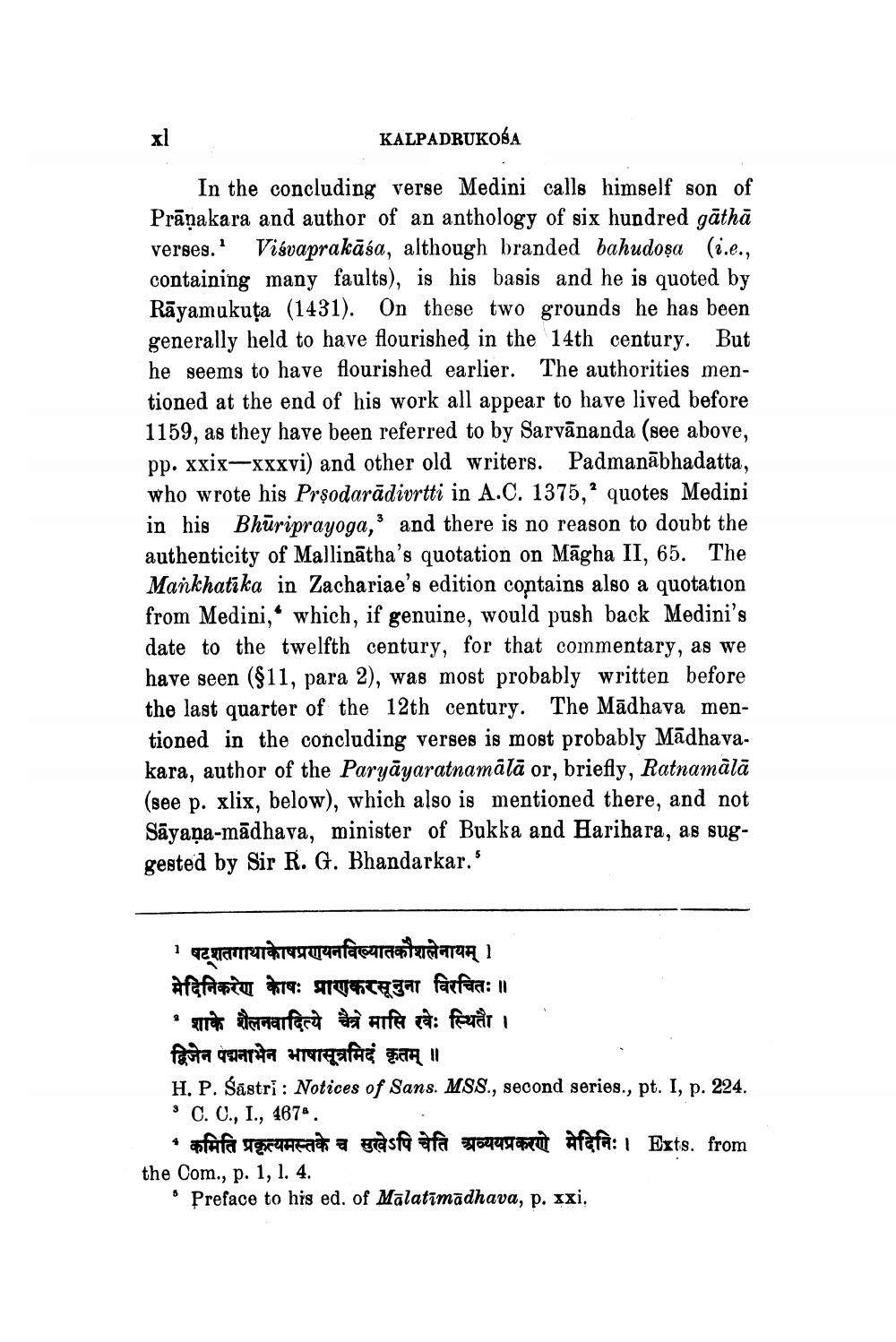________________
xl
In the concluding verse Medini calls himself son of Prāṇakara and author of an anthology of six hundred gāthā verses.1 Viśvaprakasa, although branded bahudosa (i.e., containing many faults), is his basis and he is quoted by Rayamukuţa (1431). On these two grounds he has been generally held to have flourished in the 14th century. But he seems to have flourished earlier. The authorities mentioned at the end of his work all appear to have lived before 1159, as they have been referred to by Sarvananda (see above, pp. xxix-xxxvi) and other old writers. Padmanabhadatta, who wrote his Prṣodaradivrtti in A.C. 1375,2 quotes Medini in his Bhuriprayoga, and there is no reason to doubt the authenticity of Mallinatha's quotation on Magha II, 65. The Mankhatika in Zachariae's edition contains also a quotation from Medini, which, if genuine, would push back Medini's date to the twelfth century, for that commentary, as we have seen (§11, para 2), was most probably written before the last quarter of the 12th century. The Madhava mentioned in the concluding verses is most probably Madhavakara, author of the Paryayaratnamala or, briefly, Ratnamālā (see p. xlix, below), which also is mentioned there, and not Sāyaṇa-mādhava, minister of Bukka and Harihara, as suggested by Sir R. G. Bhandarkar."
1
षट्शतगाथाकेाषप्रणयनविख्यातकौशलेनायम् । मेदिनिकरेण केोषः प्राणकरसूनुना विरचितः ॥
3
शाके शैलनवादित्ये चैत्रे मासि रवेः स्थितैौ ।
KALPADRUKOSA
द्विजेन पद्मनाभेन भाषासूत्रमिदं कृतम् ॥
H. P. Śastri: Notices of Sans. MSS., second series., pt. I, p. 224. 3 C. C., I., 467".
• कमिति प्रकृत्यमस्तके च सुखेऽपि चेति अव्ययप्रकरणे मेदिनिः । Exts from
the Com., p. 1, 1. 4.
5
Preface to his ed. of Malatīmādhava, p. xxi.




